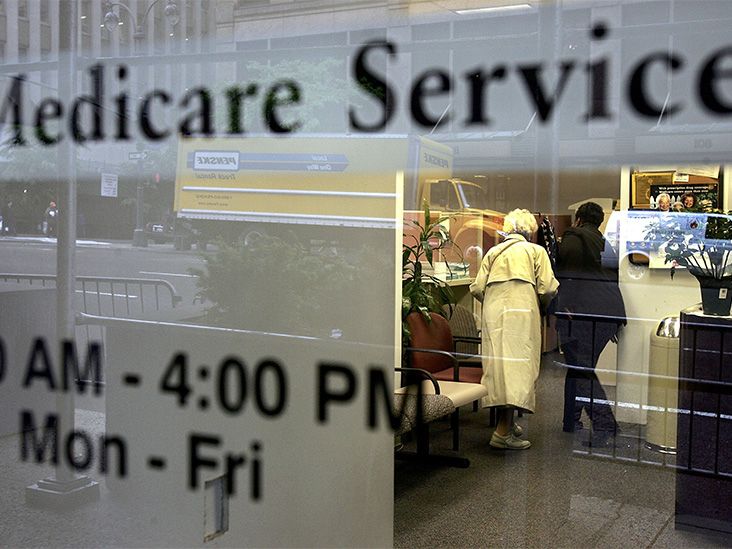Hey there! If you're reading this, chances are you're either about to turn 65 or you've already stepped into that milestone birthday, and now you're wondering what comes next. Maybe you're thinking, "Do I automatically get Medicare just because I'm 65?" Or perhaps you're asking yourself, "What even is Medicare, and how does it work here in Illinois?"
You're not alone in feeling a bit overwhelmed. I mean, let's be honest - healthcare systems can feel like trying to solve a Rubik's cube while blindfolded. But here's the thing: once you understand the basics, Medicare in Illinois really isn't as complicated as it seems. And guess what? I'm here to walk you through it, step by step.
What Exactly Is Medicare?
Think of Medicare as your federal health insurance safety net that kicks in when you turn 65. It's like having a backup plan for your health, and honestly, it's been a lifesaver for millions of Americans. Now, here's where it gets interesting - not everyone in Illinois gets Medicare the same way.
You might qualify if you're 65 or older, under 65 with certain disabilities, or have end-stage renal disease. The key thing to remember is that while Part A (hospital insurance) usually comes automatically if you're already getting Social Security, Parts B and D require you to actively sign up. It's a bit like ordering from a menu - you get the bread basket (Part A) for free, but the main course (Parts B and D) is up to you.
And if you're one of those dedicated state employees who's been working past retirement age, there are some special rules about how your state benefits work with Medicare. Trust me, it's worth checking into.
| Part | Name | Coverage | Cost (Typical) |
|---|---|---|---|
| A | Hospital Insurance | Inpatient stays, skilled nursing, hospice | Free (if eligible) |
| B | Medical Insurance | Doctor visits, outpatient care | ~$174/month (2025) |
| C | Medicare Advantage | Replaces A & B; often includes D | Varies by plan |
| D | Prescription Drugs | Covers medications | Varies by plan |
Signing Up Without the Stress
Okay, let's talk about timing. This is where a lot of people get tripped up, and I totally get why. The enrollment period for Medicare is like a window of opportunity - and if you miss it, you might end up paying more later. Your Initial Enrollment Period lasts seven months total: three months before your 65th birthday month, your birthday month, and three months after.
Now, what happens if you're still working past 65? Or maybe you lost your job-based insurance? That's where Special Enrollment Periods come in handy. Think of them as your safety net when life throws you a curveball. According to Medicare.gov, these exceptions can save you from penalties if you're in certain situations, like losing employer coverage or retiring later than expected.
But here's something that keeps me up at night thinking about the stress it causes people: missing that window for Part B enrollment. The penalty? $17 extra per month for every year you delay. That's money that just keeps compounding, like a credit card debt you didn't ask for. Trust me, it's worth setting a calendar reminder if that's what it takes to stay on track.
When it comes to actually applying, the Social Security Administration is your best friend. You can go online at SSA.gov, call their toll-free number, or even visit a local office if you prefer face-to-face help. And can I give you a piece of advice? Try to avoid relying on insurance salespeople for your initial setup - stick with official channels to avoid confusion.
Your Medicare Plan Options in the Prairie State
Here's where it gets really interesting - you've got choices! In Illinois, you can go with Original Medicare (Parts A and B straight from the federal government), or you can explore Medicare Advantage plans that bundle everything together. It's kind of like choosing between cooking at home or ordering takeout - both have their perks.
Original Medicare gives you the freedom to see any doctor who accepts Medicare, but it comes with higher out-of-pocket costs. Most people find they need to add Part D prescription drug coverage or switch to a Medicare Advantage plan that includes everything. It's like having basic cable versus a premium streaming service - one gives you more flexibility, the other gives you more convenience.
Medicare Advantage plans, on the other hand, are offered by private insurance companies and often include prescription drug coverage right in the package. These plans vary by region in Illinois, so what works in Chicago might not be available down in Carbondale. The most common types you'll see are Health Maintenance Organizations (HMOs), Preferred Provider Organizations (PPOs), and Private Fee-for-Service (PFFS) plans.
Let me tell you about my neighbor, Ruth. She was completely overwhelmed when she first started looking at Medicare options, but once we sat down together and looked at what was actually available in our area, she found a Medicare Advantage plan that covered her heart medication, included dental benefits, and even had a gym membership. The relief on her face was priceless!
Understanding Illinois Prescription Drug Coverage
Let's talk about something that affects all of us - prescription medications. Whether you're managing diabetes, heart conditions, or just need something for arthritis pain, your prescription drug coverage is crucial. Part D coverage is available either through Medicare Advantage plans or as a standalone addition to Original Medicare.
Each plan has what's called a formulary - basically a list of covered drugs. This is where you really want to pay attention, especially if you take expensive medications. Some plans offer preferred tier pricing that can save you hundreds of dollars a year. The trick is finding a plan where your specific medications are covered at the best possible price.
Here's a pro tip that could save you some headaches: identify your true formulary date early. Some plans stop accepting new members or changing formularies before the official enrollment period even begins. It's like trying to get tickets to a sold-out concert - timing really matters.
Mistakes to Avoid (Learn from Others' Experience)
I wish someone had told me this years ago: don't miss that Initial Enrollment Period for Part B! I've lost count of how many people I've met who thought they'd catch up later, only to discover that late enrollment penalties stick with you like gum on a shoe. It's one of those "I wish I knew then what I know now" moments that can cost you real money.
Another common mistake? Counting on employer coverage without checking the fine print. I know a guy named Frank who kept his employer insurance thinking it would cover everything, but when he finally retired and tried to file claims, Medicare became the primary payer and his employer plan bounced the bills right back. The surprise medical bills nearly gave him a heart attack!
But here's something that really gets to me - so many people in Illinois don't know about the amazing free resources available to them. The Senior Health Insurance Program (SHIP) offers free, unbiased counseling that can help you navigate drug lists, provider changes, and Coordination of Benefits (COB) filings. It's like having a personal shopper for your healthcare needs, and it's completely free. You can reach them at 1-800-252-8966, and I promise you won't regret booking that one-on-one session.
Finding What Works Best for You
Choosing the right Medicare plan is a bit like picking the perfect pair of jeans - what works for your neighbor might not work for you. Let's break down the main options and who they're best suited for:
| Option | Pros | Cons | Best For |
|---|---|---|---|
| Original Medicare | Nationwide access | Out-of-pocket costs | People who want flexibility |
| Medicare Advantage (HMO/PPO/PFFS) | Lower upfront premiums | Limited providers | People who like managed care |
| Medicare Supplement (Medigap) | Covers gaps in Original Medicare | Additional premium cost | Good for avoiding surprise bills |
Blue Cross Blue Shield of Illinois has a really helpful "Help Me Choose" guide that walks you through the decision-making process in a way that doesn't feel like reading the tax code. Sometimes having a structured approach can make all the difference when you're feeling overwhelmed.
Getting Help in the Land of Lincoln
You know what I love about Illinois? We take care of our own. When it comes to Medicare questions, you've got some fantastic resources right at your fingertips:
The Senior Health Insurance Program (SHIP) is like having a knowledgeable friend who never judges your confusion. They're available at 1-800-252-8966 (and accessible via TTY through TRS 711), and their website at ilaging.illinois.gov is a treasure trove of information. Whether you need help understanding your benefits summary or you're trying to figure out why a claim was denied, these folks have seen it all and can guide you through it.
If you're a state employee, the CMS Medicare COB Unit (1-800-442-1300 or 217-782-7007) can help coordinate your benefits. And for general Medicare questions, the national 1-800-MEDICARE line connects you with people who can provide proof of FISMA compliance and authoritative answers to your questions.
I'll never forget when my friend Maria called me in tears because she couldn't understand why her prescription wasn't covered. We called SHIP together, and within an hour, they had helped her understand her options and switch to a plan that would save her $200 a month. Sometimes having someone to talk you through the process makes all the difference.
Wrapping It All Up
Look, I know Medicare in Illinois can feel like trying to navigate a maze blindfolded. But here's what I want you to remember: you don't have to figure it out alone, and you definitely don't have to get it perfect the first time. The key is starting the conversation early, asking questions without feeling embarrassed, and taking advantage of the free resources available to you.
Your future self is going to thank you for taking the time to understand your options now. Whether you're ready to dive into Medicare Advantage plans, curious about how Part D works in your specific situation, or just trying to figure out when to enroll without penalty, help is just a phone call away.
So what's your next step? Maybe it's calling SHIP at 1-800-252-8966 to get personalized advice. Or perhaps visiting Medicare.gov to explore what's available in your area. Whatever feels right for you, just remember - this is your healthcare future we're talking about, and you absolutely deserve to feel confident and informed about the choices you make.
You've got this, and I'm cheering you on from the sidelines!
FAQs
Do I automatically get Medicare when I turn 65 in Illinois?
Not always. You automatically qualify for Part A if you’re already receiving Social Security, but Parts B and D require signing up during your Initial Enrollment Period.
What is the best Medicare plan in Illinois?
It depends on your needs. Original Medicare offers flexibility, while Medicare Advantage plans may include extra benefits like dental and prescription coverage.
When should I enroll in Medicare in Illinois?
Your Initial Enrollment Period starts three months before your 65th birthday month and ends three months after. Special Enrollment Periods apply in certain life situations.
Are there penalties for missing Medicare enrollment in Illinois?
Yes, especially for Part B. You may face a late enrollment penalty of $17 extra per month for each year you delay without coverage.
How can I get free help choosing Medicare in Illinois?
The Senior Health Insurance Program (SHIP) provides free, unbiased counseling. Call 1-800-252-8966 or visit ilaging.illinois.gov for personalized support.
Disclaimer: This article is for informational purposes only and does not constitute medical advice. Always consult with a healthcare professional before starting any new treatment regimen.
Related Coverage
Choosing between walkers vs canes depends on your balance, strength, and daily needs. Find the right mobility aid for you....
Learn if you qualify for Medicare eligibility and how to enroll without penalties. Get clear, simple guidance for seniors and disabled individuals....
Medicare for caregivers can help with skilled care, equipment, and training. Find out what's covered and how to get support without surprise bills....
Doing crossword puzzles regularly can help improve memory, concentration, and reasoning in aging adults. Crosswords engage broader cognitive skills than brain games....
Avoidable nursing home hospitalizations harm frail elders, disrupt care, and strain families. These preventable ER trips can be reduced with better on-site support and clear care plans....
Find the best Medicare in Tennessee options for you. Compare plans, enrollment periods, and coverage to make informed decisions....
Get clarity on how Medicare handles preexisting conditions and waiting periods. Know your coverage options and make informed decisions....
Find out if Medicare hospice care covers 24-hour in-home support and what services are included under hospice benefits....
Coping with retinol irritation like burning, redness, dryness? Learn how long symptoms last, when to worry, and get aftercare tips to heal skin post inflammation....
Explore the 10 things your doctor may not tell you about the dying process, shedding light on the scientific, emotional, and spiritual aspects of mortality....









